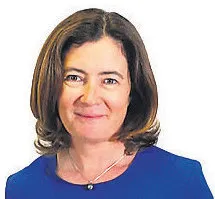
Hate speech in the Lords

Tim Dieppe
In December, no Government spokesman
in the House of Lords would confirm that a
Christian would be free from arrest if they
proclaimed the uniqueness of Jesus.
In reply to a question by Lord Pearson,
Baroness
Williams
of
Trafford,
the Minister of
State for countering extremism,
replied:‘The definition
[of a hate crime] is: any criminal offence which
is perceived
to be motivated by
hostility or prejudice based
on a person’s actual or perceived disability,
race,
religion, sexual orientation or transgender identity. When
flagged as a hate crime, the
police will be satisfied that an offence has
been committed and will
then
investigate
evidence in support of the appropriate charge,
as well as the aggravated element of hostility.
It would not be appropriate for me, as I have
just said, to confirm whether this [proclaiming the uniqueness of Jesus] is an example
which would constitute a hate crime. That
would be an operational decision both of
the police and the CPS based on the specific circumstances.’
Highlighted in the Lords

Tim Dieppe
Baroness Cox hosted a meeting in the House
of Lords on 13 March to highlight the serious problems that Christians in Northern
Nigeria are facing at the hands of militant
Muslims.
Journalist Douglas Murray
describes it as ‘ethnic and religious cleansing’ which appears to be taking place with
the Nigerian government’s complicity.
Mark Lipdo of the Nigerian organisation
Stefanos Foundation has been keeping
records of
the multiple atrocities
that he
hears about. The local Muslim Fulani terrorist group is rated as the fourth most deadly
terrorist group in the world. Some 4,000
people have been killed since 2014 by this
group. They frequently destroy crops and
take over villages, with brutal attacks at night. The government knows about this,
but is not challenging it. Even when they
have video evidence taken by the perpetrators, but left behind on a dropped phone,
nothing is done. They say that the security
network is dominated by Fulani Muslims.
'Anti-Muslim hostility' proposed definition leaked
On Monday, the proposed government definition of anti-Muslim hostility was leaked to the BBC.
Earlier this year, the government set up a working group to come up with a definition of Islamophobia/anti-Muslim hatred. Baroness Gohir, a prominent member of the working group has confirmed that the definition leaked to the BBC is the one that the group proposed to the government in October. It had been kept secret since then, while the government has deliberated and consulted with various groups.